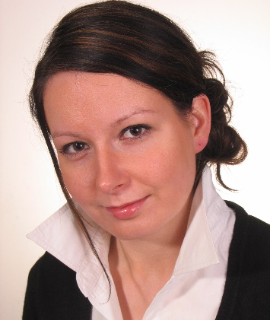Title : Fusion proteins containing a binding domain as potential delivery systems for therapeutic proteins
Abstract:
Fusion proteins consist of at least two domains encoded by separate genes. These genes, when combined, are transcribed and then translated to form a single polypeptide. The use of biotechnological methods by using the fusion of the cloned foreign gene with the recipient's gene allows for obtaining fusion proteins, i.e. new proteins with different or improved properties.
Currently, gene fusion techniques allow the production of recombinant proteins with traits that are a combination of those exhibited by the parent molecules. As a result, they have been used in many scientific fields, where they are used, inter alia, as gene expression reporters, as markers facilitating the purification of proteins or increasing their solubility, histochemical markers enabling the tracking of the location of proteins in cells, and as biopharmaceuticals. In the latter case, they mainly help by improving the pharmacokinetics and biodistribution of drugs.
The carbohydrate binding modules (CBM) are proteins that are great partners for fusion proteins. The most famous of these are the abundant cellulose binding domains. However, there are many other CBMs recognizing, inter alia, chitin, xylan, mannan, galactan, starch or glycans found on the surface of cells. Many of them are non-toxic to eucaryotic cells, so when combined with proteins with healing or pro-regenerative properties, they can be an excellent source of new generation drugs.
We designed the appropriate vectors carrying the binding domain gene, which we used for cloning in the suitable places of genes encoding proteins with therapeutic effect. Thus, the obtained new plasmid constructs were used for gene expression in the Escherichia coli system. The fusion proteins were biosynthesized and then purified using the NiNTA resin. The interaction between fusion proteins and the selected carbohydrate were investigated using the BLItz analyzer.


